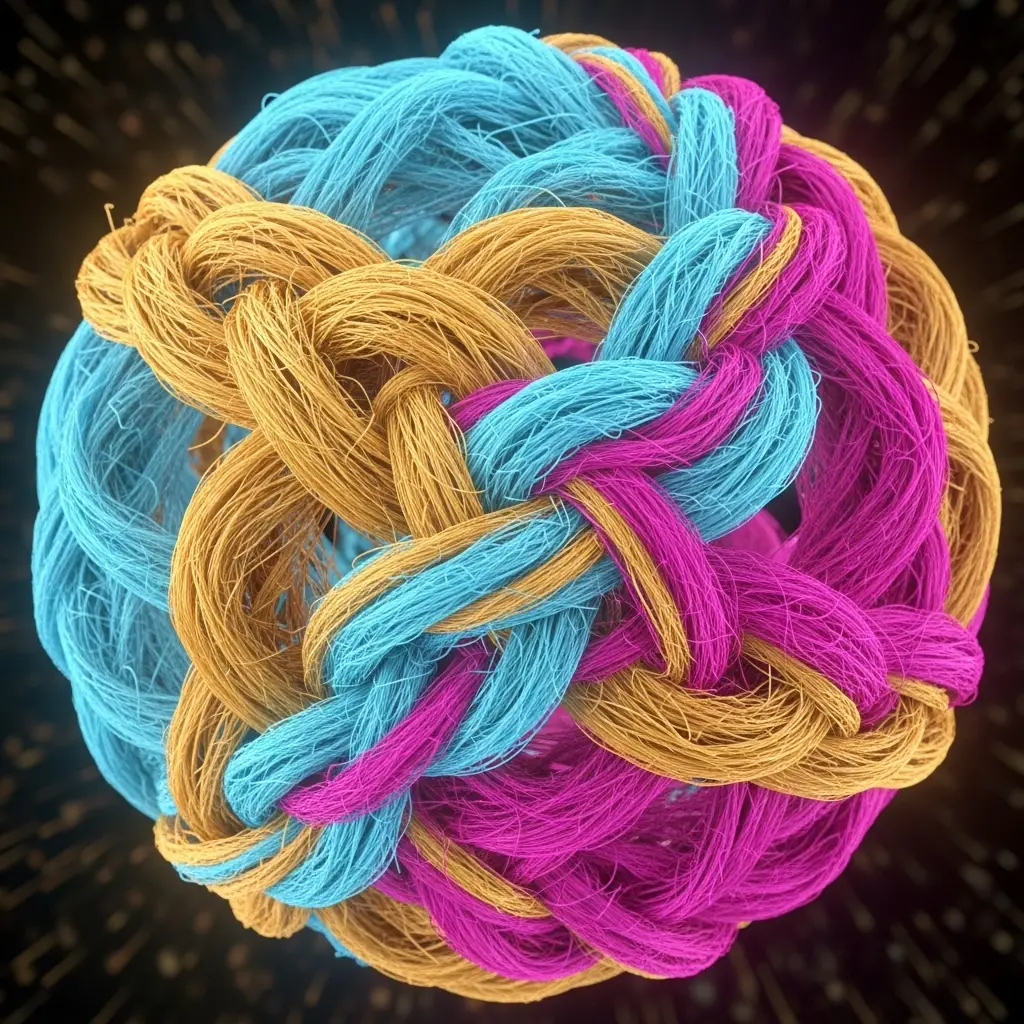Key Takeaways
- Mastering the art of learning requires embracing the journey, not just the end goals.
- Nietzsche’s metaphor underscores the significance of patience and perseverance in the pursuit of personal growth.
- The holistic aspects of learning involve integrating mind, body, and emotions to create an authentic experience.
- Overcoming challenges and finding your rhythm can lead to significant progress in learning.
- Celebrate small victories along the way to acknowledge growth and maintain high motivation.
Estimated reading time:15 minutes
Table of contents
- 🪶7 Timeless Lessons from Nietzsche on Mastering the Art of Learning
- 🔑Understanding Nietzsche’s Metaphor
- 🌱The Holistic Aspects of Learning
- ⛰️The Metaphysical Implications
- 🧭7 Timeless Lessons for Your Learning Journey
- 👣Conclusion: Your Path to Flight Begins on the Ground
- 🎯Your Action Plan: Take the First Step Today
- 📚Recommended Reads & Resources
🪶7 Timeless Lessons from Nietzsche on Mastering the Art of Learning

Have you ever felt the urge to skip to the end, to bypass the tedious steps and achieve mastery in an instant? In our fast-paced world, it’s easy to fixate on the “flying” – the grand achievements and ultimate goals. But what if the true path to mastery lies in embracing the journey itself, in experiencing the art of learning? What if the fundamental transformation isn’t found in the moment of flight, but in the strength and wisdom gained while learning to walk, run, and climb?
In this blog post, we’ll explore the profound wisdom of Friedrich Nietzsche’s famous quote. We’ll delve into the holistic and metaphysical implications of this timeless metaphor, uncovering valuable insights for personal and educational growth. By the end, you’ll have a renewed appreciation for the process of learning and a deeper understanding of how to cultivate mastery in all areas of life.
🔑Understanding Nietzsche’s Metaphor

Nietzsche’s metaphor of learning to fly is a powerful reminder that mastery is a journey, not a destination. It’s a call to patience, perseverance, and a deep respect for the process. But this wisdom extends beyond the realm of physical skills. It’s a profound look at how we grow as whole beings, engaging our mind, body, and spirit in unison. When these parts are disconnected, learning feels like a chore—a mental task forced upon a reluctant body. But when they are integrated, learning becomes an authentic expression of who we are, a natural unfolding of our potential.
🌱The Holistic Aspects of Learning

Authentic learning is an integrative endeavor. The journey from standing to flying is an alchemical process where every part of you is forged together.
- Mind-Body Connection: Learning as Embodiment
Nietzsche, who famously walked for hours to structure his thoughts, understood that knowledge isn’t just an abstract concept in the brain; it’s something we embody. “Standing” and “walking” are literal acts of grounding. When a musician practices scales, the knowledge isn’t just in their mind—it’s in the muscle memory of their fingers. We don’t just think our way to mastery; we live and breathe our way there. The physical struggle of the “climb” ingrains resilience into our very nervous system, and the grace of the “dance” embeds creative fluency into our being. The body isn’t just a vehicle for the mind, but its essential partner in the act of creation. This is knowledge that sinks beneath the level of conscious thought and settles into your very cells, becoming an instinct you can trust. - Emotional Intelligence: The Alchemy of Struggle
The flight path is full of emotional turbulence: the frustration of stumbling, the fear of falling, the self-doubt that comes before a breakthrough. Nietzsche would argue that these feelings are not obstacles to the learning process; they are the learning process. Each setback is a chance to practice what he called amor fati—a love of one’s fate. It’s learning to welcome the struggle as necessary for growth. It is in the heat of these complex emotions that we forge patience, develop a proper growth mindset, and learn to separate our ego from our progress. The goal is not to avoid frustration, but to learn to dance with it. Where we might normally fight it, flee from it, or be defeated by it, the dance implies a partnership. It means moving with the resistance, letting it guide you toward the areas that need more strength and attention. - Social Learning: The Dance of Interconnection
While the climb to mastery is deeply personal, it is rarely solitary. The “dance” is a perfect metaphor for our social learning. We dance with mentors who show us the steps, with peers who challenge our rhythm, and with the ideas of those who came before us. This is a dynamic exchange, not just a passive reception of information. It involves observing, collaborating, mirroring, and finding our unique style within a larger tradition. Often, it’s in relation to others that we see the perspective and inspiration needed to take flight finally. This is holistic because we are not isolated beings; our growth is intertwined with the development of others. To learn in a vacuum is to know in fragments. To learn in a community is to become whole.
⛰️The Metaphysical Implications

Beyond the practical, Nietzsche’s metaphor points to a fundamental purpose of human existence: the drive to grow, become, and transcend. Learning isn’t just about acquiring skills; it is the primary way we create ourselves.
- Self-Overcoming: Forging the Person You Can Become
For Nietzsche, the goal of life wasn’t to find yourself but to create yourself through a process of “self-overcoming.” The journey from standing to flying is the very map of this process. The person who has only learned to “stand” is overcome by the one who can “walk.” Each stage is a loving farewell to your former self to make way for a stronger, more capable being. Like a snake shedding its skin, you aren’t destroying yourself, but letting go of a version of you that has become too small. This is the path to what Nietzsche famously called the Übermensch (or ‘Overman’)—not a superhero, but a human being who has mastered the art of continuous self-creation. You aren’t just learning a skill; you are forging the version of you for whom that skill is a natural expression. - Transcendence as a Change in Perspective
The metaphor of flight is so powerful because it represents a fundamental shift in perspective. A person on the ground sees obstacles: a wall, a chasm, a dense forest. A person in flight sees patterns, connections, and the path forward. This is the nature of true mastery. Learning to “climb” doesn’t just make you stronger; it elevates your vantage point. Transcending limitations isn’t just about breaking through barriers, but about rising to a level where those barriers are no longer relevant. The ultimate goal of learning is to change not just what you can do, but how you see. It’s the moment when you are no longer lost in the complexity of the trees because you can finally see the elegant simplicity of the entire forest. The problem hasn’t changed, but your relationship to it has been forever transformed. - The Will to Power: The Engine of Growth
The innate desire to learn, to strive, to overcome—this is the expression of what Nietzsche called the “Will to Power.” This isn’t about dominating others, but about the fundamental, life-affirming drive of all things to expand, exert their strength, and achieve their fullest potential. That frustration you feel when you can’t solve a problem is your Will to Power meeting resistance. The joy you feel at a small victory—the “dance”—is your Will to Power flowing freely. Think of a child’s relentless drive to stand up after falling, or your own innate curiosity that pulls you toward a new idea. That is the Will to Power in its purest form. It reframes learning from a chore into a joyful expression of your own vitality.
🧭7 Timeless Lessons for Your Learning Journey

- Embrace the Process: Focus on the journey itself, not just the end goal. This is where the fundamental transformation happens.
- Cultivate Patience: Mastery takes time and effort. Don’t get discouraged if you don’t see results immediately. Growth is organic, not mechanical.
- Build a Strong Foundation: Start with the basics and gradually build upon them. Don’t try to skip steps. You cannot fly from a foundation of sand.
- Embrace Challenges: Challenges are growth opportunities. Don’t be afraid to step outside your comfort zone. Resistance is what builds the muscle required for flight.
- Find Your Rhythm: Everyone learns at their own pace. Find a learning style and rhythm that works for you. The goal is to dance, not to march.
- Celebrate Small Victories: Each new word learned, each chord played, each hurdle overcome – these are milestones worth recognizing. It acknowledges the progress of your self-overcoming.
- Embrace the Unexpected: The journey of learning is rarely linear. Learn to navigate the unexpected and adapt to changing circumstances. This teaches you to soar on currents, not just follow a rigid flight plan.
👣Conclusion: Your Path to Flight Begins on the Ground

Nietzsche’s metaphor of learning to fly encapsulates a profound truth about personal growth and educational development. It reminds us that mastery is achieved through a gradual, step-by-step process. By embracing the journey, celebrating the steps, and respecting the process of learning, we can unlock our full potential and soar to new heights.
Nietzsche’s wisdom is not a call to delay our dreams, but a blueprint for achieving them. The desire to “fly into flying” is a natural human urge, but true mastery—the kind that feels effortless and soaring—is forged in the deliberate, often unglamorous, practice of standing, walking, running, climbing, and dancing. These are not obstacles on the path; they are the path. Each step builds the strength, resilience, and wisdom necessary to not only take flight but to sustain it. This is not merely skill acquisition; it is the sacred work of self-overcoming. The ground, then, is not a prison holding you from the sky; it is the workshop where your wings are built.
The journey is where you build your wings. Now, it’s time to take control of that journey and begin the construction.
🎯Your Action Plan: Take the First Step Today

Don’t just be inspired by the idea of flying; commit to the process of learning. This week, take these three accountable steps to turn Nietzsche’s philosophy into your personal practice.
- Honor the “Stand and Walk”: Define Your Foundational Step.
- Task: Choose one skill you want to master. Now, break it down and identify the single most fundamental action you can take. Is it learning the C scale on the piano? Writing one solid paragraph? Can you do a single push-up with perfect form?
- Action: Write this single step down on a sticky note and place it where you’ll see it every day. Your only goal for the next three days is to practice this one thing.
- Schedule Your “Climb”: Embrace Deliberate Difficulty.
- Task: Review your calendar for the upcoming week and schedule a 30-minute block of time to focus on a skill area that you find challenging. This is your “climb.” It’s not about succeeding; it’s about showing up to face the difficulty.
- Action: Treat this scheduled time as an unbreakable appointment with your future self. When the time comes, put away distractions and give the challenge your full attention.
- Acknowledge Your “Dance”: Find Rhythm in Your Progress.
- Task: At the end of the week, take five minutes to write down one small victory. Did you finally hit that note? Did a sentence flow perfectly? Did you hold that yoga pose for one second longer? This is your “dance”—the moment you find rhythm in your effort.
- Action: Keep a “Victory Log” in a notebook or a digital file. This isn’t for anyone else; it’s tangible proof for you that every step, no matter how small, is moving you forward.
The sky is not a destination you arrive at; it’s a potential you unlock from within. Stop waiting for wings to appear and start strengthening your legs. What is the “walk” you will commit to this week? Share your first step in the comments below to make your commitment public and take flight.
“Our actions and decisions today will shape how we will live. And so it is.”
If my words made you pause, smile, or think, Buy Me a Coffee. It helps fuel my thinking and keeps my dream alive, one word at a time. 🍵
📚Recommended Reads & Resources

Suggested Books & Resources
Directly from the Source: Nietzsche’s Works
For those who want to engage with Nietzsche’s ideas firsthand. His writing is famously aphoristic, challenging, and immensely rewarding.
- Thus Spoke Zarathustra by Friedrich Nietzsche: This is the philosophical novel where the quote about learning to fly originates. It’s a dense, poetic exploration of the Übermensch, self-overcoming, and the Will to Power. It’s best approached after having some familiarity with his core concepts.
- Ecce Homo: How One Becomes What One Is by Friedrich Nietzsche: Nietzsche’s intellectual autobiography. It provides a fascinating, if highly stylized, look into his own process of self-creation and his reflections on his life’s work.
- The Gay Science by Friedrich Nietzsche: A brilliant collection of aphorisms and essays where Nietzsche introduces concepts like amor fati (love of one’s fate) and the eternal recurrence. It is one of his most accessible and life-affirming works.
On the Art of Mastery & The Learning Process
These books explore the practical and psychological dimensions of the journey from “standing” to “flying.”
- Mastery by George Leonard: This is the most direct modern companion to the article’s theme. Leonard argues that true mastery is found by learning to love the “plateau”—the long periods of practice between breakthroughs—and embracing the process for its own sake.
- Mindset: The New Psychology of Success by Carol S. Dweck: Dweck’s foundational work on the “growth mindset” versus the “fixed mindset” perfectly aligns with the article’s section on “The Alchemy of Struggle.” It provides the psychological framework for seeing challenges not as roadblocks, but as the very path to growth.
- Peak: Secrets from the New Science of Expertise by Anders Ericsson and Robert Pool: This book dives into the science of “deliberate practice”—the real-world version of the “climb.” It explains that mastery isn’t about innate talent but about focused, intentional effort, perfectly mirroring Nietzsche’s step-by-step process.
- Grit: The Power of Passion and Perseverance by Angela Duckworth: Duckworth’s research shows that high achievement is a product of sustained passion and perseverance, not just talent. This book is an excellent resource for understanding the emotional resilience required to walk, run, and climb before you can fly.
- Flow: The Psychology of Optimal Experience by Mihaly Csikszentmihalyi: This classic explores the state of “flow,” where one is fully immersed and energized by an activity. It beautifully describes the feeling of the “dance” in Nietzsche’s metaphor—the joyful rhythm found when challenge and skill are in perfect balance.
On Philosophy and The Good Life
These books connect the article’s themes to broader philosophical traditions, especially Stoicism, which resonates deeply with Nietzsche’s idea of embracing one’s fate.
- Meditations by Marcus Aurelius: The private reflections of a Roman emperor on how to live a life of virtue, resilience, and purpose. His Stoic principles of accepting what you cannot control and focusing on your own character are a powerful complement to amor fati.
- The Obstacle Is the Way by Ryan Holiday: A modern, accessible guide to the core tenets of Stoicism. Holiday uses historical anecdotes to show how moments of struggle and adversity can be turned into opportunities for triumph—a perfect manual for the “climb.”
Online Resources
For those who prefer digital and multimedia learning.
- The Marginalian (formerly Brain Pickings): An incredible online resource by Maria Popova that explores philosophy, personal growth, and the creative process through the lens of literature, science, and art. Many articles touch on Nietzsche, mastery, and the beauty of the journey.
- The Partially Examined Life (Podcast): A philosophy podcast that makes complex ideas accessible through informal, engaging discussions. They have several episodes dedicated to Nietzsche that are a great entry point into his thought.
- Academy of Ideas (YouTube Channel): This channel creates beautifully animated videos that explain complex philosophical and psychological concepts, with many dedicated to Nietzsche, Carl Jung, and Stoicism. Their videos on “Self-Overcoming” and “Amor Fati” are particularly relevant.
- Huberman Lab (Podcast): Hosted by neuroscientist Andrew Huberman, this podcast explores the science behind learning, focus, and resilience from a biological perspective. It provides a fascinating scientific look at the “mind-body connection” discussed in the article.
SoBrief.com provides users with book summaries and related content.
Remember to explore these resources with an open mind and trust your intuition to find what resonates most deeply with your journey of rediscovery.

🔗 Affiliate Note: Some links on this page may be affiliate-based, allowing us to earn a small commission at no additional cost to you. Your support helps fuel this creative and healing mission—thank you!

Copyright ©️IZALGO, LLC All Rights Reserved
